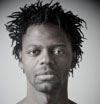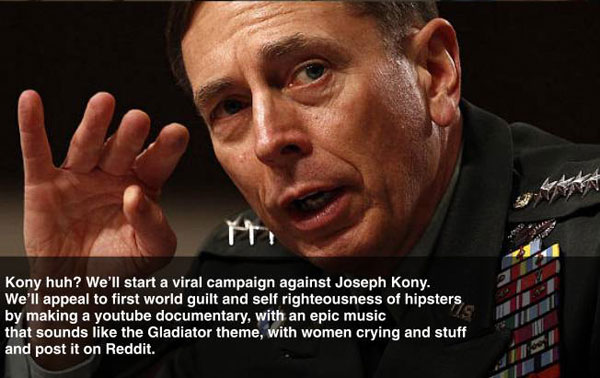KONY. Who? No longer.
Ofcourse you have watched the KONY 2012 film by the organisation Invisible. If not scroll down take a dekho.
Its generating over 1 crore views per day on youtube for a 30 min film!!
And a good amount of it is fueled by the negative PR the organisation is getting due its dazzling success on social media.
As people promote the following clip their network is commenting with links of how the organisation behind the film might be a rip-off.
This campaign has pretty well suceeded in seeding the cause of arrest and prosecution of Joseph Kony, leader of the rebel group of Uganda amongst people around the world. But it seems to be failing in its cause to raise funds for the promoting organisation Invisible Children through sale of merchandise and donations as blogs around the world expose its mis management of funds. This can bee seen below in the few blog articles uploaded below.
This campaign emerges as a classic case of how a brand can lose on social media despite doing all the right things if it doesnt have right in its core. Thus in a way social media is turning out to be a rare democratic platform uplholding truth in todays corrupt world where even the news is usually bought.
Another example of a similar but smaller rip-off is How Pepsi hijacked a social project in Phillipines.
Read further popular posts lamenting the social organisation behind this video and make your own views about the organisation, its campaign and the need to be true of social media, especially if you plan to successfull.
KONY 2012: Is the Viral Campaign a Scam?
KONY 2012, a documentary produced by non-profit Invisible Children, has gone viral in the past couple days, receiving millions of views on YouTube and Vimeo.
The video has also, however, begun to receive significant backlash from organizations and publications questioning the authenticity of Invisible Children. Many of the negative critiques have been targeted at Invisible Children’s practices as an organization, not whether Joseph Kony, the leader of the Lord’s Resistance Army, is a war criminal.
Visible Children, a Tumblr dedicated to evaluating the legitimacy of the KONY 2012 campaign, raised some points Wednesday morning which have resurfaced in numerous publications.
“Invisible Children has been condemned time and time again. As a registered not-for-profit, its finances are public. Last year, the organization spent $8,676,614. Only 32% went to direct services (page 6), with much of the rest going to staff salaries, travel and transport, and film production. This is far from ideal, and Charity Navigator rates their accountability 2/4 stars because they haven’t had their finances externally audited. But it goes way deeper than that.”
You can evaluate Invisible Children’s 2011 budget, which is public online, for yourself: $1,074,273 was allocated to travel and $1,724,993 was allocated to staff compensation.
Invisible Children replied to the criticism in a blog post overnight Thursday, iterating its “three prong” approach to tackling the LRA: documenting crimes, channeling advocacy into energy and operating programs on the ground.
“In response to this explosion of interest about the Kony 2012 film, there have been hundreds of thousands of comments in support of the arrest of Joseph Kony and the work of Invisible Children. However, there have also been a few pieces written that are putting out false or mis-leading information about these efforts.”
Some Reddit users have been very involved in the discussion of the 30-minute documentary, raising similar questions and pointing out Invisible Children’s lack of compliance with the Better Business Bureau’s Wise Giving Alliance.
“While participation in the Alliance’s charity review efforts is voluntary, the Alliance believes that failure to participate may demonstrate a lack of commitment to transparency,” states the organization’s evaluation.
Others across the Twittersphere have accused KONY 2012 of promoting slacktivism — the idea that sharing, liking or retweeting will solve a problem — across the social web. Slacktivism was even turned into the college student and Wonka memes.
I, for one, can’t remember the last time so many of my Facebook friends shared the same link (upwards of 20 were showing on my news feed all day Wednesday). Facebook events for KONY 2012 tours sprung up as well.As with all charitable giving, individual research is necessary to evaluate one’s level of comfort with an organization. Read through what Visible Children, Invisible Children and others have written if you’re interested in taking a stance on the campaign, which has undoubtedly gone viral.
If you, like many others, shared the film, how much did you research the organization before sharing its compelling film? Do you think KONY 2012 is promoting slacktivism? Sound off in the comments.
via mashable.com
Why I am opposed to this campaign
I do not doubt for a second that those involved in KONY 2012 have great intentions, nor do I doubt for a second that Joseph Kony is a very evil man. But despite this, I’m strongly opposed to the KONY 2012 campaign.
KONY 2012 is the product of a group called Invisible Children, a controversial activist group and not-for-profit. They’ve released 11 films, most with an accompanying bracelet colour (KONY 2012 is fittingly red), all of which focus on Joseph Kony. When we buy merch from them, when we link to their video, when we put up posters linking to their website, we support the organization. I don’t think that’s a good thing, and I’m not alone.
Invisible Children has been condemned time and time again. As a registered not-for-profit, its finances are public. Last year, the organization spent $8,676,614. Only 32% went to direct services (page 6), with much of the rest going to staff salaries, travel and transport, and film production. This is far from ideal, and Charity Navigator rates their accountability 2/4 stars because they haven’t had their finances externally audited. But it goes way deeper than that.
The group is in favour of direct military intervention, and their money supports the Ugandan government’s army and various other military forces. Here’s a photo of the founders of Invisible Children posing with weapons and personnel of the Sudan People’s Liberation Army. Both the Ugandan army and Sudan People’s Liberation Army are riddled with accusations of rape and looting, but Invisible Children defends them,arguing that the Ugandan army is “better equipped than that of any of the other affected countries”, although Kony is no longer active in Uganda andhasn’t been since 2006 by their own admission. These books each refer to the rape and sexual assault that are perennial issues with the UPDF, the military group Invisible Children is defending.
Invisible Children has been condemned time and time again. Last year, the organization spent $8,676,614. Only 32% went to direct services.
Still, the bulk of Invisible Children’s spending isn’t on supporting African militias, but on awareness and filmmaking. Which can be great, except that Foreign Affairs has claimed that Invisible Children (among others) “manipulates facts for strategic purposes, exaggerating the scale of LRA abductions and murders and emphasizing the LRA’s use of innocent children as soldiers, and portraying Kony — a brutal man, to be sure — as uniquely awful, a Kurtz-like embodiment of evil.” He’s certainly evil, but exaggeration and manipulation to capture the public eye is unproductive, unprofessional and dishonest.
As Chris Blattman, a political scientist at Yale, writes on the topic of IC’s programming, “There’s also something inherently misleading, naive, maybe even dangerous, about the idea of rescuing children or saving of Africa. […] It hints uncomfortably of the White Man’s Burden. Worse, sometimes it does more than hint. The savior attitude is pervasive in advocacy, and it inevitably shapes programming. Usually misconceived programming.”
Still, Kony’s a bad guy, and he’s been around a while. Which is why the US has been involved in stopping him for years. U.S. Africa Command (AFRICOM) has sent multiple missions to capture or kill Kony over the years. And they’ve failed time and time again, each provoking a ferocious response and increased retaliative slaughter. The issue with taking out a man who uses a child army is that his bodyguards are children. Any effort to capture or kill him will almost certainly result in many children’s deaths, an impact that needs to be minimized as much as possible. Each attempt brings more retaliation. And yet Invisible Children supports military intervention. Kony has been involved in peace talks in the past, which have fallen through. But Invisible Children is now focusing on military intervention.
Military intervention may or may not be the right idea, but people supporting KONY 2012 probably don’t realise they’re supporting the Ugandan military who are themselves raping and looting away. If people know this and still support Invisible Children because they feel it’s the best solution based on their knowledge and research, I have no issue with that. But I don’t think most people are in that position, and that’s a problem.
People supporting KONY 2012 probably don’t realise they’re supporting the Ugandan military who are themselves raping and looting away.
Is awareness good? Yes. But these problems are highly complex, not one-dimensional and, frankly, aren’t of the nature that can be solved by postering, film-making and changing your Facebook profile picture, as hard as that is to swallow. Giving your money and public support to Invisible Children so they can spend it on supporting ill-advised violent intervention and movie #12 isn’t helping. Do I have a better answer? No, I don’t, but that doesn’t mean that you should support KONY 2012 just because it’s something. Something isn’t always better than nothing. Sometimes it’s worse.
If you want to write to your Member of Parliament or your Senator or the President or the Prime Minister, by all means, go ahead. If you want to post about Joseph Kony’s crimes on Facebook, go ahead. But let’s keep it about Joseph Kony, not KONY 2012.
This article is published with the approval of Grant Oyston.
Additional coverage from Grant Oyston is online at http://visiblechildren.tumblr.com
African voices respond to KONY 2012
By Xeni Jardin at 11:55 am Thursday, Mar 8
The internets are all a-flutter with reactions to Kony 2012, a high-velocity viral fundraising campaign created by the "rebel soul dream evangelists" at Invisible Children to "raise awareness" about Ugandan warlord Joseph Kony and child soldiers. As noted in my previous post here on Boing Boing, the project has many critics. There is a drinking game, there are epic lolpictorials, and a chorus of idiots on Facebook.
There are indications the project may be about stealth-evangelizing Christianity. The Invisible Children filmmakers have responded to some of the criticism. Media personalities and celebrities are duking it out as the campaign (and now, backlash) spreads.
But in that flood of attention, one set of voices has gone largely ignored: Africans themselves. Writers, journalists, activists; people of African descent who live and work and think about life on the continent. In this post, we'll round up some of their replies to #Kony2012.
Above, a video by Rosebell Kagumire, a Ugandan multimedia journalist who works on "media, women, peace and conflict issues." She writes, "This is me talking about the danger of portraying people with one single story and using old footage to cause hysteria when it could have been possible to get to DRC and other affected countries get a fresh perspective and also include other actors."
Ethiopian writer and activist Solome Lemma writes that she is disturbed by the "dis-empowering and reductive narrative" evidenced in Invisible Children's promotional videos: "[It] paints the people as victims, lacking agency, voice, will, or power. It calls upon an external cadre of American students to liberate them by removing the bad guy who is causing their suffering. Well, this is a misrepresentation of the reality on the ground. Fortunately, there are plenty of examples of child and youth advocates who have been fighting to address the very issues at the heart of IC’s work."
Musa Okwonga, a " football writer, poet and musician of Ugandan descent," writes in an Independent op-ed: “I understand the anger and resentment at Invisible Children’s approach, which with its paternalism has unpleasant echoes of colonialism. I will admit to being perturbed by its apparent top-down prescriptiveness, when so much diligent work is already being done at Northern Uganda’s grassroots... Watching the video, though, I was concerned at the simplicity of the approach that Invisible Children seemed to have taken."
Award-winning Nigerian-American novelist and photographer Teju Cole published an inspired set of tweets today on sentimentality toward Africa by Americans. Ethan Zuckerman gathered them here, and Alexis Madrigal did the same here. "From Sachs to Kristof to Invisible Children to TED, the fastest growth industry in the US is the White Savior Industrial Complex," Cole writes. "The white savior supports brutal policies in the morning, founds charities in the afternoon, and receives awards in the evening." He is brilliant and you should be following him on Twitter, anyway.
Angelo Opi-aiya Izama, a journalist and researcher based in Kampala, Uganda, writes: "The simplicity of the 'good versus evil,' where good is inevitably white/western and bad is black or African, is also reminiscent of some of the worst excesses of the colonial era interventions. These campaigns don’t just lack scholarship or nuance. They are not bothered to seek it."
Benin-born "Author and Africa Enthusiast" Mafoya Dossoumon focuses less on the shortcomings of "Invisible Children," and more on the power elite within Africa. "I urge you my African brothers and sisters, and friends of Africa to direct more energy towards holding our leaders accountable. Our leaders have failed us! "
TMS Ruge, the Ugandan-born co-founder of Project Diaspora is pissed. He says he wants to "bang my head against my desk" to "make the dumb-assery stop." writes, "It is a slap in the face to so many of us who want to rise from the ashes of our tumultuous past and the noose of benevolent, paternalistic, aid-driven development memes. We, Africans, are sandwiched between our historically factual imperfections and well-intentioned, road-to-hell-building-do-gooders. It is a suffocating state of existence. To be properly heard, we must ride the coattails of self-righteous idiocy train. Even then, we have to fight for our voices to be respected."
Semhar Araia, founder of the Diaspora African Women's Network (DAWN), is based in Minneapolis and is of Eritrean descent. DAWN "develops and supports talented women and girls of the African diaspora," and is focused on African affairs. In an opinion piece at the Christian Science Monitor titled "Learn to Respect Africans," Araia writes of Invisible Children: "They must be willing to use their media to amplify African voices, not simply their own. This isn’t about them."
At National Geographic, a guest essay by Anywar Ricky Richard, a former child soldier of the Lord’s Resistance Army, and director of the northern Ugandan organization Friends of Orphans. Richard writes of perceptions of Invisible Children in northern Uganda, where the group has had a presence for some years, "They are not known as a peace building organization and I do not think they have experience with peace building and conflict resolution methods. I totally disagree with their approach of military action as a means to end this conflict."
Dayo Olopade, a Nigerian-American journalist who is writing a book on the connection between disruptive technology and African development, wrote an opinion piece for the New York Times: "The mundane march of progress in poor countries is what 'awareness' campaigns often miss. And when, as in this case, success is determined by action from outside the region, cries of a new imperialism should be taken seriously. Few international NGOs working in Africa define success properly — as putting themselves out of business. Invisible Children seems no better."
Ethan Zuckerman is not African, but the Global Voices co-founder has done much work over the years to create platforms and networks that amplify voices from the continent, and promote thoughtful, informed dialogue on complicated issues like this one. Ethan has a great roundup of links from various African voices. And Global Voices contributor Rebekah Heacock has an extensive post here, which gathers opinions from the African blog-o-/twitter-o-sphere.
•
UPDATE: The Guardian has just published an interview with Jacob Acaye, "the Ugandan former child abductee at the heart of the film Kony 2012." Acaye is now a 21-year-old law student in Kampala, and he defends the video, the online campaign, and the people behind it.
Acaye's home region around the town of Gulu is now relatively peaceful, and the Lord's Resistance Army (LRA), which kidnapped him and killed his brother in 2002, has been driven out of northern Uganda along with its warlord leader, Joseph Kony, who has melted into the forests of the Democratic Republic of Congo and the Central African Republic. But Acaye denied widespread criticism in Uganda and elsewhere that the American-made film calling for Kony's arrest is out-of-date or irrelevant. "It is not too late, because all this fighting and suffering is still going on elsewhere," Acaye, now 21, told the Guardian in a telephone interview from Kampala, where he is studying law. "Until now, the war that was going on has been a silent war. People did not really know about it.
via boingboing.net












No comments:
Post a Comment